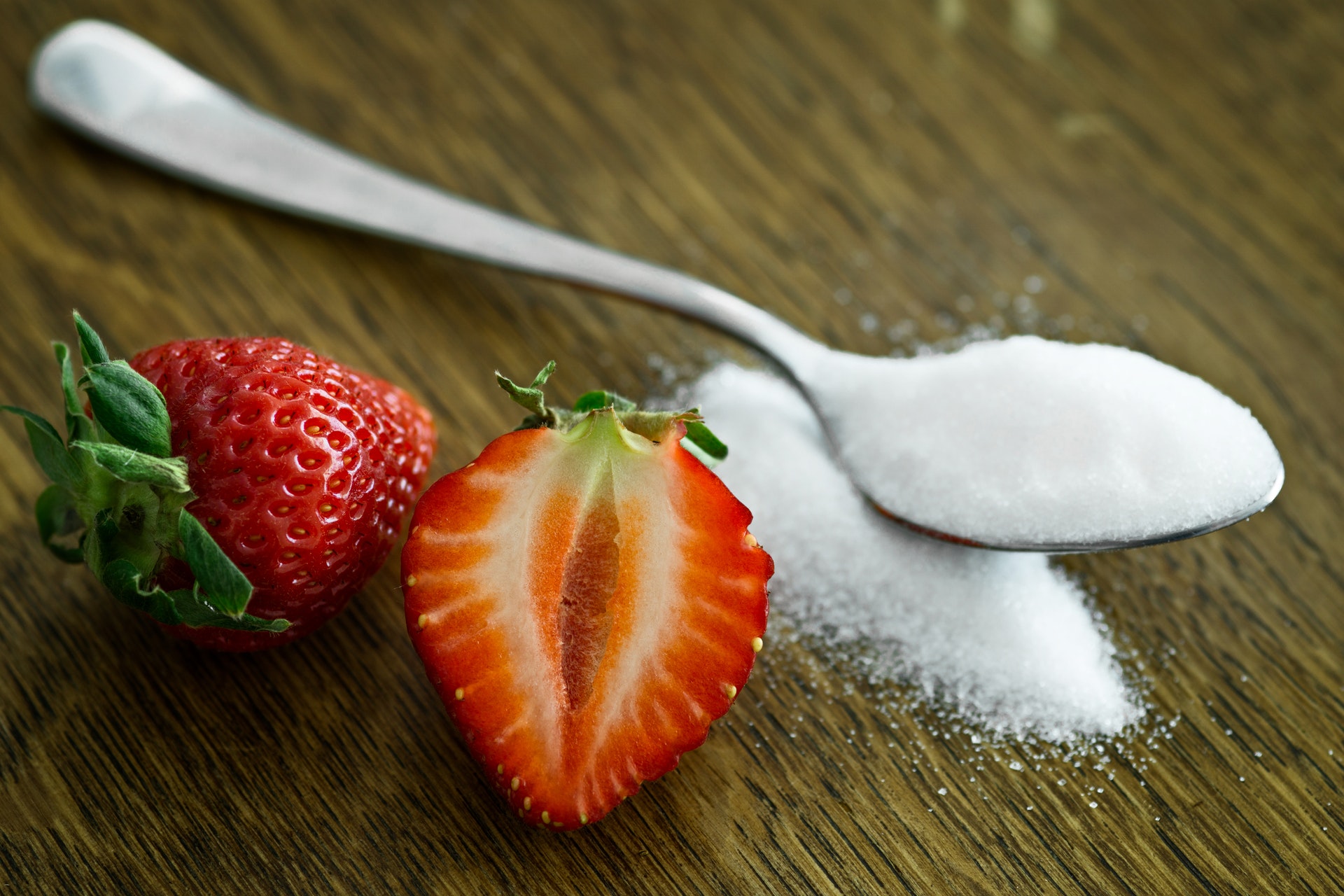Sugar can be found in almost everything you eat, from cookies and cakes to yogurt and spaghetti sauce. If you don’t check labels, it is incredibly easy to exceed the daily sugar intake recommended by the World Health Organization (WHO) and the American Heart Association, which is six teaspoons for women and nine teaspoons for men. Most Americans eat far too much sugar–each person averaging about fifty-seven pounds of sugar per year, or seventeen teaspoons a day.
Addiction And Cravings
Just what does too much added sugar do to the body? In excess, fructose artificially extracted from corn, beets and sugarcane is toxic to the liver, just like alcohol. Nearly all added sugars are brimming with fructose. Even organic cane sugar, which sounds healthy, is fifty percent fructose. As alcoholics can get beer belly, sugarholics can get sugar belly. A sugar belly occurs when excess fructose is broken down by the liver and transformed into fat globules called triglycerides. If your waist is larger than your hips, you should see your doctor for a blood test to check your triglyceride levels.
Bacteria feeds on sugar. When you eat a candy bar, bacteria will begin to swarm the lingering sugars in your mouth and grow around it, causing the teeth to rot and form cavities. Sugar also causes inflammation in the body. This can cause joints to swell, increasing the risk of developing rheumatoid arthritis and causing skin to age faster.
Sugar increases the risk of heart complications such as stroke, heart disease and heart attacks. This is due to sugar raising the level of insulin in the bloodstream, which can cause your arteries to swell and harden over time, putting added stress on the heart. You are twice as likely to die of heart disease if 25% percent or more of your daily calories come from added sugar.
Too much insulin from sugar can also affect your pancreas. When your insulin levels are elevated for long periods of time, your body stops responding properly to insulin, causing your pancreas to pump out more insulin to compensate. This process overworks the pancreas, putting you at risk for type 2 diabetes or heart disease.
Addiction And Cravings
Sugar is not a drug. Yes, sugar stimulates pathways in the brain that trigger a surge of dopamine, but so do hugs. The overlapping paths may produce effects similar to substance use, but that doesn’t make them addictive like drugs, explains Ali Webster, RD, PhD, associate director of nutrition communications for the International Food Information Council Foundation. The sensation of being “addicted” may come from the sudden spike and drop of blood sugar levels, which can cause a dramatic rise and fall in energy levels, and lead you to consume more sugar to perk yourself back up.
It is not impossible to avoid sugar. It may seem that way, with sugar hiding in unexpected places like ketchup, barbeque sauce, canned soup, iced tea, and canned beans. However, one may successfully conduct a sugar detox by consuming a diet of homemade meals consisting of whole foods: vegetables, fruits, lean meats, poultry, or tofu, fish, whole and unprocessed grains and legumes, nuts and seeds. Make a vegetable stir-fry served with soy sauce. Blend up a fruit smoothie. Stew up a savory ratatouille. Stir together tomato, onion, garlic, and spices for homemade spaghetti sauce. If you do your research, you will be able to find plenty of easy, healthy, cheap recipes that contain little to no added sugar.
Ultimately, to cut back on sugar, it may be best to take it slow. Start by kicking the obvious culprits to the curb: chocolate, hard candy, and brownies. Make sure to also clear away those sports drinks and fruit juices with added sugar, and to reduce the amount of sweetener you add to coffees and teas.
Natural Sugars
It is worth mentioning that not all sugar is bad for you. While it is true that added sugars and artificial sweeteners can cause a myriad of health effects, sugar also occurs naturally in foods such as fruit and milk.In this natural form, sugar is completely fine. It’s almost impossible to overeat fructose by eating fruit. Fruit also contains fiber, which causes the body to absorb sugar at a slower rate. In addition to fiber, fruit is also packed with other essential vitamins, minerals, and nutrients. So, for the person wanting to change their relationship with sugar, it can be a good idea to snack on plenty of juicy oranges and crisp apples.


